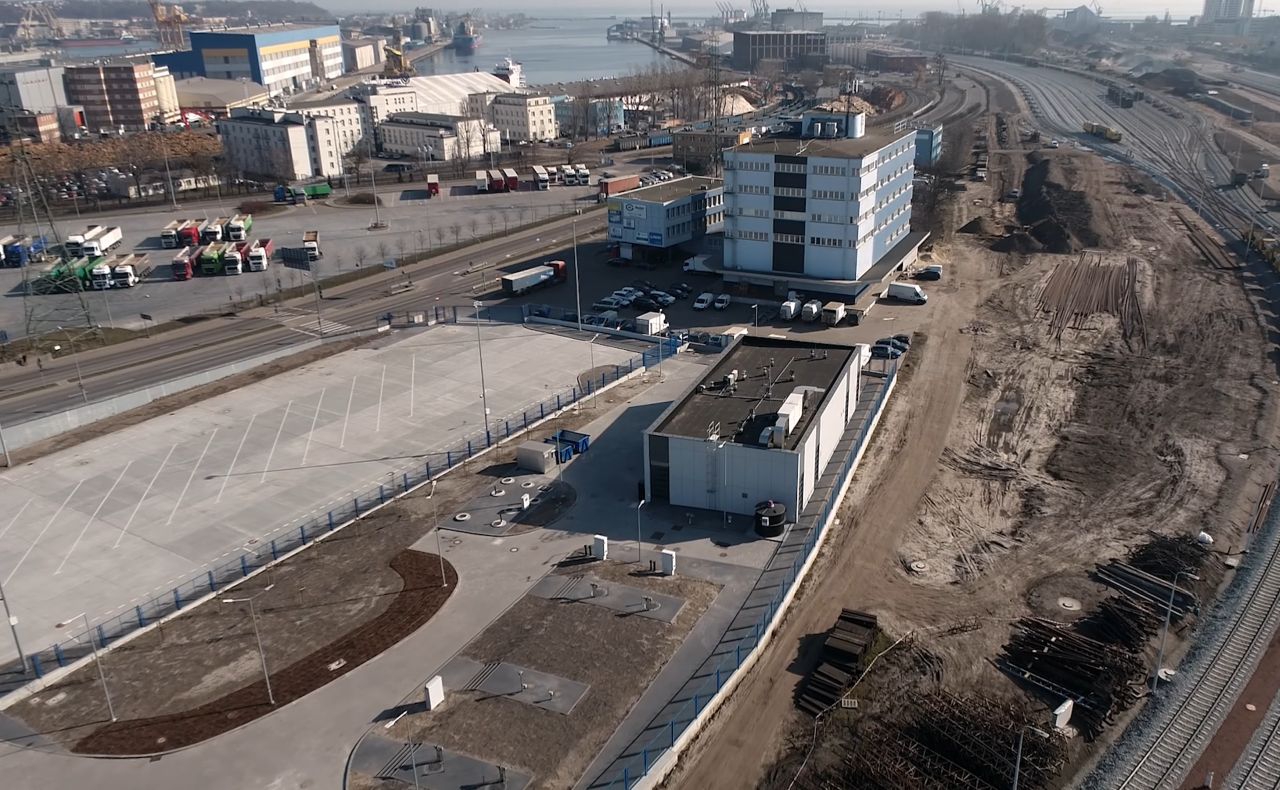![[VIDEO] Port of Gdynia. A system for treating and disposing of sewage from passenger ships has been created - MarinePoland.com [VIDEO] Port of Gdynia. A system for treating and disposing of sewage from passenger ships has been created - MarinePoland.com](https://www.marinepoland.com/zdjecia/artykul/1538/6404/1200x0/2/Clipboard03.jpg)
The Port of Gdynia has gained an
important infrastructure from the perspective of the natural
environment - thanks to a special system, sewage from ferries and
cruise ships will be treated and discharged directly into the city
network.
As you can easily guess, the sewage generated on
ferries and cruise ships cannot be discharged into the water. So what
happens to it? It's discharged in ports. While this is often done
simply by means of special sewage vehicles, the Port of Gdynia is
about to launch a system that will make the whole process much
easier, what is more, it will bring a great relief to the natural
environment.
Gdynia as a precursor on the Baltic
Sea
On Thursday 24th March, the project named "Construction of port infrastructure for receiving sanitary sewage from ships in the Port of Gdynia" was officially completed in the Port of Gdynia. The most visible element of this infrastructure is the building of the so called sewage pre-treatment plant located at Polska Street. However, this is just the tip of the iceberg - the project worth almost 62 million PLN involved the construction of special installations, tanks and sewage systems stretching from the quays along the entire length of Polska Street. Through which wastewater will be discharged directly from passenger ships, properly treated and introduced into the municipal system.
According to Jacek Sadaj, President
of the Port of Gdynia Authority, this is the first installation of
this type in the Baltic Sea.
- Nowadays, in order to establish
good relations with our contractors, who place ecology very high in
the hierarchy, we have to take care of ecological directions
ourselves. Today we can proudly say that we are the first sea port in
the Baltic Sea basin which can boast of an installation for taking
care of sanitary waste from passenger vessels - said Jacek Sadaj.

The president also said that the
investment made it possible to create new squares and parking lots,
under which the system's elements are stretched. The area has
therefore been used optimally. Sadaj also added that ecological
solutions implemented in Gdynia are appreciated by the port's
contractors.
- We have ambitions to represent a
very high level of engagement in environmental protection. I would
even say that it is our declaration in this jubilee year - a
declaration for the next hundred years of development respecting the
green approach to environmental protection - concluded president
Sadaj.
The city rejoices
Why is the new ship sewage disposal
system an ecological solution? First of all, the sewage is properly
treated before it enters the municipal system. Moreover, by resigning
from using sewage collection vehicles and minimizing the risk of
leakage into the water, the negative impact of the shipping activity
on the environment will be reduced.
This fact is also welcomed by
Gdynia city. The vice-president of Gdynia for innovation, Michał
Guć, who was present at the conference crowning the project,
emphasized that it was a very big and important investment.
- The support from the Operational
Programme Infrastructure and Environment obtained by the Port of
Gdynia Authority allowed to implement a target, high standard
investment that significantly improves environmental conditions.
Thanks to this, wastewater from ships, where most of it is generated,
from ferries, from cruisers, on which we as a city care a lot, will
be directed to the treatment plant. This is a large-scale project and
it has been implemented very efficiently by the Port of Gdynia
Authority - said Michał Guć.
Four ships at once
Passenger ships have the option of
discharging sanitary sewage at the French and Belgian quays and at
the newly constructed ferry terminal.
- From these areas, wastewater
flows through a pumped-gravity sanitary sewer system, via six pumping
stations, and enters the pre-treatment plant in an expansion well.
The heart of the wastewater treatment plant is located in the process
building. In order to discharge the wastewater into the municipal
network, it has to meet a number of requirements. The variant which
we have chosen as the most optimal is the mechanical-chemical
pre-treatment method - explained Magdalena Klawikowska, sanitary
investor supervision inspector on behalf of the Port of Gdynia
Authority. As she informed, the maximum capacity of the pre-treatment
plant is 1680 m3 per day, which allows four ships to be serviced at
the same time.

The entire project cost nearly PLN
62 million. Work began back in 2019. In the first phase, a discharge
installation, a sanitary sewer network, retention and equalization
tanks and a catchment well were built. The second phase of the
project involved the construction of the pretreatment plant itself
and the development of the area occupied by its facilities, as part
of which the truck parking layout was also reconstructed.
The project was financed with own
funds of the Port of Gdynia Authority and the EU funds. The subsidy
obtained for its implementation from the Cohesion Fund under the
Operational Programme Infrastructure and Environment 2014 - 2020
amounted to PLN 18.70 million.


